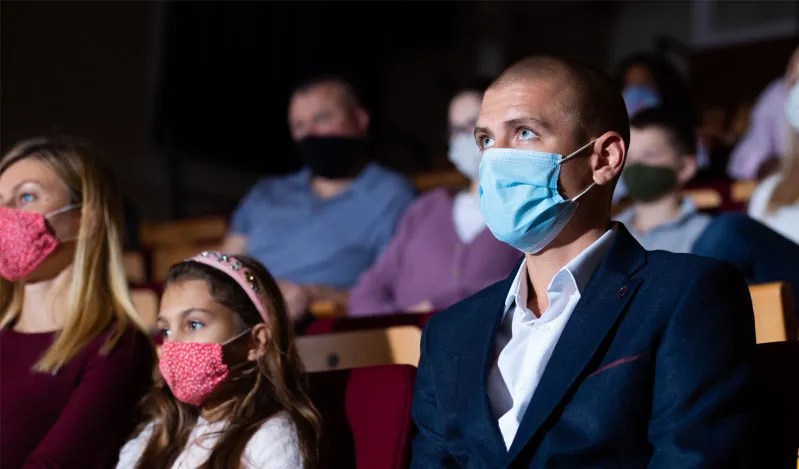[Please note that this article is not intended to be legal advice and is for informational purposes only.]
Many live events organizations are in the final stages of developing their reopening plans in anticipation of throwing open their doors and welcoming back their guests. It’s a highly anticipated moment that elicits mixed emotions – from feelings of euphoria to feelings of trepidation. Planning for the safe reopening of a venue is a big responsibility that can bring about more questions than answers.
It’s imperative to properly prepare for guests with expected fears and arm your staff members with strategies to handle volatile situations. It’s also crucial for you to make informed decisions when it comes to safety protocols and other potentially challenging measures like health screenings, testing and vaccine requirements.
What safety protocols should we have in place?
While there is a lot of optimism that the COVID-19 pandemic will soon be ending, many cities, states/provinces and other regulators have created a variety of safety requirements that impact venue operators. Although it can be difficult to keep up and maintain these safety requirements, it’s important to be aware of them and do as much as you reasonably can to meet them in order to best protect your business, your staff and your guests.
Here are some basic safety requirements to consider implementing:
- Health screening
- Signs, decals, and positioning markers
- Hand cleaning stations
- Contactless options wherever possible (check-ins, purchasing, programs, doors)
- Extra cleaning (railings, tables/seat turnover, etc.)
- Special ventilation
- Occupancy restrictions (as required in your city, state/province).
Should we require health screening, face coverings and/or proof of vaccination?
Health screening
Health screening is an important tool and can be done in a variety of ways, including: a pass/fail temperature check, and health questionnaire.
Face Coverings
The rules on requiring face coverings are changing quickly, depending on the location of your venue. If not currently required in your location, continuing to encourage or mandate masks for guests, employees and vendors is a good safety step. Protecting your staff is very important because employers are required to take reasonable steps for employee safety and venue operators are uniquely vulnerable to increased COVID-19 restrictions, shutdowns and mass exposure, given the large number of guests that attend events.
Encouraging mask wearing might be easier to achieve by making it part of event marketing, for example by providing complimentary or low-cost branded masks, offering benefits for mask wearers, shout-outs/thank yous from performers for the most creative mask .
Vaccinations
While in many locations asking guests about vaccination status is allowed, this can be challenging to manage properly. If you’re going to ask guests about vaccination status, extra planning should be done ahead of time, as there are vaccination exemptions for certain health and/or religious reasons. These exceptions are very difficult to judge and enforce. Also, taking in this type of confidential health data from guests, employees and vendors requires care and information management protocols, which may be beyond the capacity of some operators.
Should we require guests to sign a waiver?
There are many opinions on the use and validity of waivers, but it’s likely better to have a clearly written waiver than not to have one. Waivers can help inform guests about important information and risks of their voluntary attendance and provide the potential for additional protection for your business, your employees and other stakeholders such as your landlord. Receiving guidance from your attorney to prepare the release will give you the best chance to maximize the effect and minimize the risk. Also remember to check your insurance coverage with your insurance broker – waivers don’t replace the protection appropriate insurance coverage provides.
Should we update our ticket terms & conditions?
This is a good idea, along with reviewing event and vendor contracts. Updates to the ticket terms help inform guests, and help manage financial risk if there are future shutdowns or a need to cancel/postpone events.
What might happen if there is a COVID-19 issue at our event?
There are a variety of risks/impacts if there is a COVID-19 issue at your event, which makes implementing minimum safety steps even more important. Some of those impacts include:
- Mandated full or partial venue shutdown
- Notification requirements to regulators, such as health departments
- Additional cleaning and ventilation requirements
- Lawsuits by guests, vendors, contractors
- Workers’ compensation reporting and/or claims by employees
- Workplace health and safety complaints and/or claims by employee
- Other contract liability to landlords, service providers, etc.
Please note that this article is not intended to be legal advice and is for informational purposes only. What you are required to do and should do as an operator will depend on your specific circumstances and the city, regional, state/province, federal rules where your venue is located. COVID-19 and other safety related measures are constantly in flux and should be regularly reviewed to stay up to date and ensure compliance.
